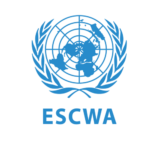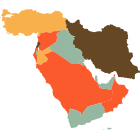Assessment and Analysis of Business Environment Legislative Framework in the Arab Region
Background:
Over the past decade, Egypt has undergone significant political and economic changes, marked by a commitment to political and regulatory reforms. This transformation began with Egypt’s partnership with the International Monetary Fund (IMF) in 2010 to stimulate economic growth, job creation, and fiscal stability. Key reforms included lifting capital controls imposed in 2015 and expanding structural reforms to improve the business climate. Despite these efforts, Egypt ranks 128th out of 190 countries in the World Bank’s Ease of Doing Business ratings. The Egyptian government has identified regulatory reform, transparency in state-owned enterprises, and anti-corruption measures as top priorities. To support these initiatives effectively, Egypt seeks to establish a more robust regulatory and policy-making process characterized by principles like proportionality, accountability, consistency, and transparency.
Moreover, government service delivery has seen simplification and streamlining, with various ministries undergoing organizational restructuring to enhance their ability to implement government strategies. The Ministries of Finance and Investment have initiated significant reforms, including tax and banking reforms, while the Ministry of State for Administrative Development has introduced “one-stop” shops to simplify public service delivery. To further stimulate investment and economic growth, the Egyptian Regulatory Reform and Development Activity (ERRADA) was established in 2008. ERRADA operates under the Sub-cabinet Committee for Monitoring Economic Performance and focuses on addressing regulatory challenges in the business climate through dialogue between public and private institutions.
Triangle’s Assessment:
- Project Objectives: The project focused on several key objectives, including conducting a comprehensive review of existing regulations related to foreign direct investment, competition, consumer protection, and anti-corruption in Arab countries.
- Incorporating Best Practices: It aimed to reflect best practices in international and regional regulations and ensure that these practices were integrated into the training program effectively.
- Mapping Regulatory Framework: An essential component involved mapping the then-current regulatory framework in each country, assessing existing legislation, and identifying the main challenges and recommendations concerning international benchmarks and best practices.
- Coordination of Outputs: Close coordination with the project lead was vital to align research outputs with the overarching project goals and objectives effectively.
- Methodology: The research methodology adhered to the OECD’s Recommendation on Regulatory Policy and Governance, leveraging an adaptive approach. Key elements included a thorough literature review, in-depth key informant interviews, the design of relevant training tools, and engaging international and local experts.
- Practical Training Program: The project’s core output was the implementation of a practical five-day training program. This program was designed to provide participants with a comprehensive understanding of best practices in regulatory reform within the specific context of Egypt.
- Phased Adaptive Approach: The project adopted a phased approach consisting of three distinct phases: Inception, Training Design, and Training Delivery. Each phase was strategically designed to build upon the previous one.
- Conceptual Themes: The five-day training program was structured around three overarching conceptual themes: international and regional regulation best practices, mapping the Egyptian regulatory framework, and brainstorming for the future.
- Expert Training Team: A team of local and international experts with significant experience in regulatory reform and foreign direct investment strategies led the training program. This team was complemented by experienced management personnel.
- Assumptions: Success relied on several key assumptions, including the timely provision of information, feedback, and logistical support from ESCWA and its governmental partners. The project assumed that any delays or unforeseen obstacles would be addressed through mutual agreement, and necessary facilities and interpretation services were provided as needed.
Project:
Assessment and Analysis of Business Environment Legislative Framework in the Arab Region
Duration:

April 2020-June 2021
Lebanon
